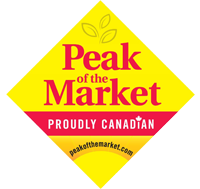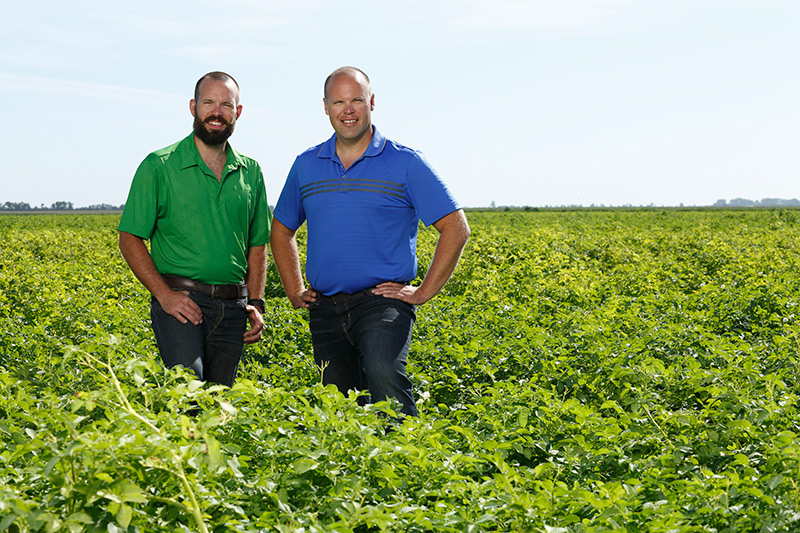Southern Potato Co.
Bright Future for Family Farm
By Jennifer McFee
Southern Potato Co. is no small fry when it comes to growing spuds.
Now in its fourth generation, the family farm sprouted up from strong agricultural roots.
In 1923, Henry Kuhl bought land in the Winkler area where Southern Potato took root. He learned his skills from his father, a farmer who immigrated to Canada from Ukraine in 1870. The farm was passed down the family line from Henry to his son John and then to grandson Keith, who continues to run the operation today along with his own sons Marlon and Jeremy.
“It’s pretty much in my blood,” says Keith Kuhl, board chair of Peak of the Market Ltd. and president of the Canadian Horticultural Council. “Both of my sons, who now manage the day-to-day operations, grew up on the farm and experienced all of the different work and responsibilities.”
Today, the long-standing farm produces more than 20 different varieties of potatoes for Peak of the Market Ltd. and Old Dutch Foods, as well as rotational crops such as wheat, corn, canola and soybeans. The farm spans 6,500 acres, with 2,000 acres of potatoes in all shapes, sizes and colours.
For Keith, the Viking variety has always been one of his favourites. “It’s a red-skin, white-flesh potato that’s very smooth with very shallow eyes. It’s a really great all-around potato. But some of the fingerling potatoes that we’ve been growing are actually working out extremely well and I really enjoy those. Some of those specialty potatoes are more difficult to grow, but we don’t mind challenges,” he says.
“The beauty of working with some of these niche market varieties is that a lot of the chefs are looking for products that are going to give them unique potatoes to use on the plates. It’s a good opportunity to connect with people in the food service industry.”
In addition to the joy that stems from his homegrown veggies, Keith also appreciates the ability to work with others in the industry.
“I like the ongoing interaction with the family – not only my family but the family of people within the company. We employ about 50 people year-round and enjoy a very close working relationship with them. We’ve got great loyalty with the people who work for us,” he says. “There’s also collaboration throughout the whole supply chain. The interaction with suppliers and customers provides ongoing encouragement to keep moving forward.”
And with an eye on the horizon, Keith remains optimistic about the future of farming – especially for the younger generation and women in the family.
“With the growth of the farms, there’s such a variety of roles and responsibilities in the operation. In the past, the perception has always been that if you were on a farm, you had to be out on the land and running the equipment. But now, most farms have a business manager and possibly sales and human resource personnel,” Keith says.
“So the opportunities for involvement in a farm, especially a farm like ours, have changed dramatically. I’m hoping that this will allow future generations to change their perception and attract more young people to stay on the farm.”

